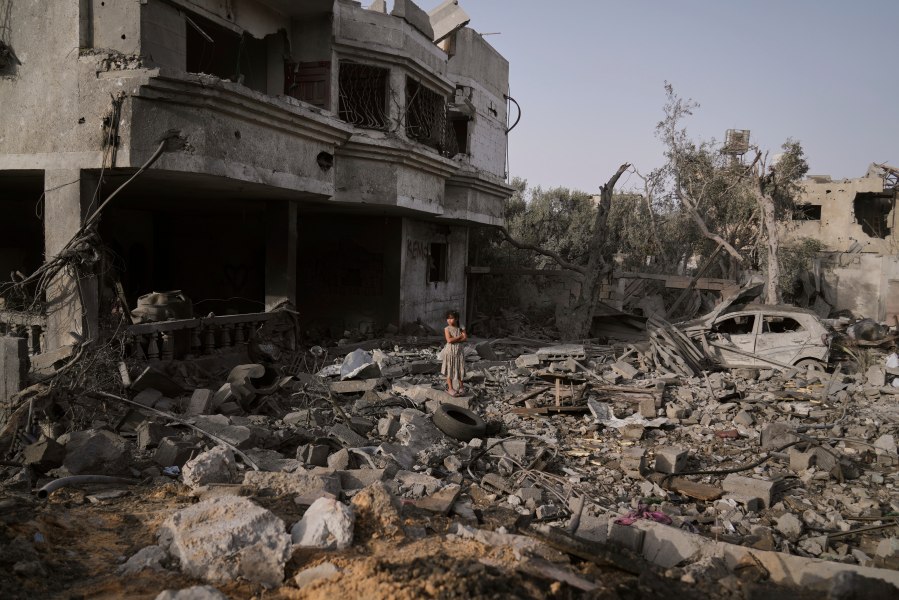
CAIRO (AP) — In a significant development, Hamas indicated on Wednesday its openness to a ceasefire agreement with Israel. However, the group stopped short of accepting a U.S.-backed proposal announced by President Donald Trump just hours earlier. Hamas remains steadfast in its demand that any deal must bring an end to the ongoing war in Gaza.
President Trump revealed on Tuesday that Israel had agreed to a 60-day ceasefire in Gaza and urged Hamas to accept the deal to prevent the situation from deteriorating further. The U.S. President has been intensifying efforts to pressure both the Israeli government and Hamas into brokering a ceasefire and hostage agreement to conclude the war. Trump suggested that a comprehensive deal could be reached as early as next week.
Despite these developments, Hamas’ response, which emphasized the necessity of ending the war, has cast doubt on whether the latest offer could lead to an actual cessation of hostilities. Hamas official Taher al-Nunu asserted that the militant group was “ready and serious regarding reaching an agreement” and was open to any initiative that clearly leads to the complete cessation of the war.
Complexities of Ceasefire Negotiations
A Hamas delegation is scheduled to meet with Egyptian and Qatari mediators in Cairo to discuss the proposal, according to an Egyptian official who spoke on condition of anonymity. The official was not authorized to discuss the talks with the media.
Throughout the nearly 21-month-long conflict, ceasefire discussions between Israel and Hamas have repeatedly stalled over the terms of ending the war. Hamas has expressed willingness to release the remaining 50 hostages, less than half of whom are believed to be alive, in exchange for a complete Israeli withdrawal from Gaza and an end to the conflict.
Conversely, Israel maintains that it will only agree to end the war if Hamas surrenders, disarms, and exiles itself—conditions that Hamas refuses to accept. An Israeli official, also speaking on condition of anonymity, stated that the latest proposal includes a 60-day ceasefire with a partial Israeli withdrawal from Gaza and an increase in humanitarian aid to the territory. The mediators and the U.S. would provide assurances about discussions on ending the war, but Israel is not committing to that as part of the latest proposal.
Challenges and Skepticism
It remains unclear how many hostages would be freed under the agreement, though previous proposals have suggested the release of about 10. Israel has yet to publicly comment on Trump’s announcement. On Monday, Trump is set to host Israeli Prime Minister Benjamin Netanyahu for talks at the White House, following recent discussions between senior Netanyahu adviser Ron Dermer and top U.S. officials regarding Gaza, Iran, and other matters.
On Tuesday, Trump took to social media to announce that Israel had “agreed to the necessary conditions to finalize the 60 Day CEASEFIRE, during which time we will work with all parties to end the War.” He warned, “I hope, for the good of the Middle East, that Hamas takes this Deal, because it will not get better — IT WILL ONLY GET WORSE.”
Trump’s warning may be met with skepticism by Hamas. Even before the expiration of the war’s longest ceasefire in March, Trump had repeatedly issued dramatic ultimatums to pressure Hamas into agreeing to longer pauses in the fighting, which would facilitate the release of more hostages and the return of more aid to Gaza’s civilian population.
The Humanitarian Toll
Nevertheless, Trump views the current moment as a potential turning point in the brutal conflict that has claimed more than 56,000 lives in the Palestinian territory. The Gaza Health Ministry does not differentiate between civilians and combatants in its death toll, but reports that more than half of the deceased are women and children.
The war began on October 7, 2023, when Hamas-led militants attacked southern Israel, resulting in 1,200 deaths and approximately 250 hostages being taken.
The conflict has devastated the coastal Palestinian territory, leaving much of the urban landscape in ruins. More than 90% of Gaza’s 2.3 million residents have been displaced, often multiple times. The war has also triggered a humanitarian crisis, pushing hundreds of thousands of people toward hunger.
As diplomatic efforts continue, the international community watches closely, hoping for a resolution that could bring peace and stability to the region. The coming days will be crucial in determining whether a ceasefire can be achieved and if a path toward ending the war can be forged.




